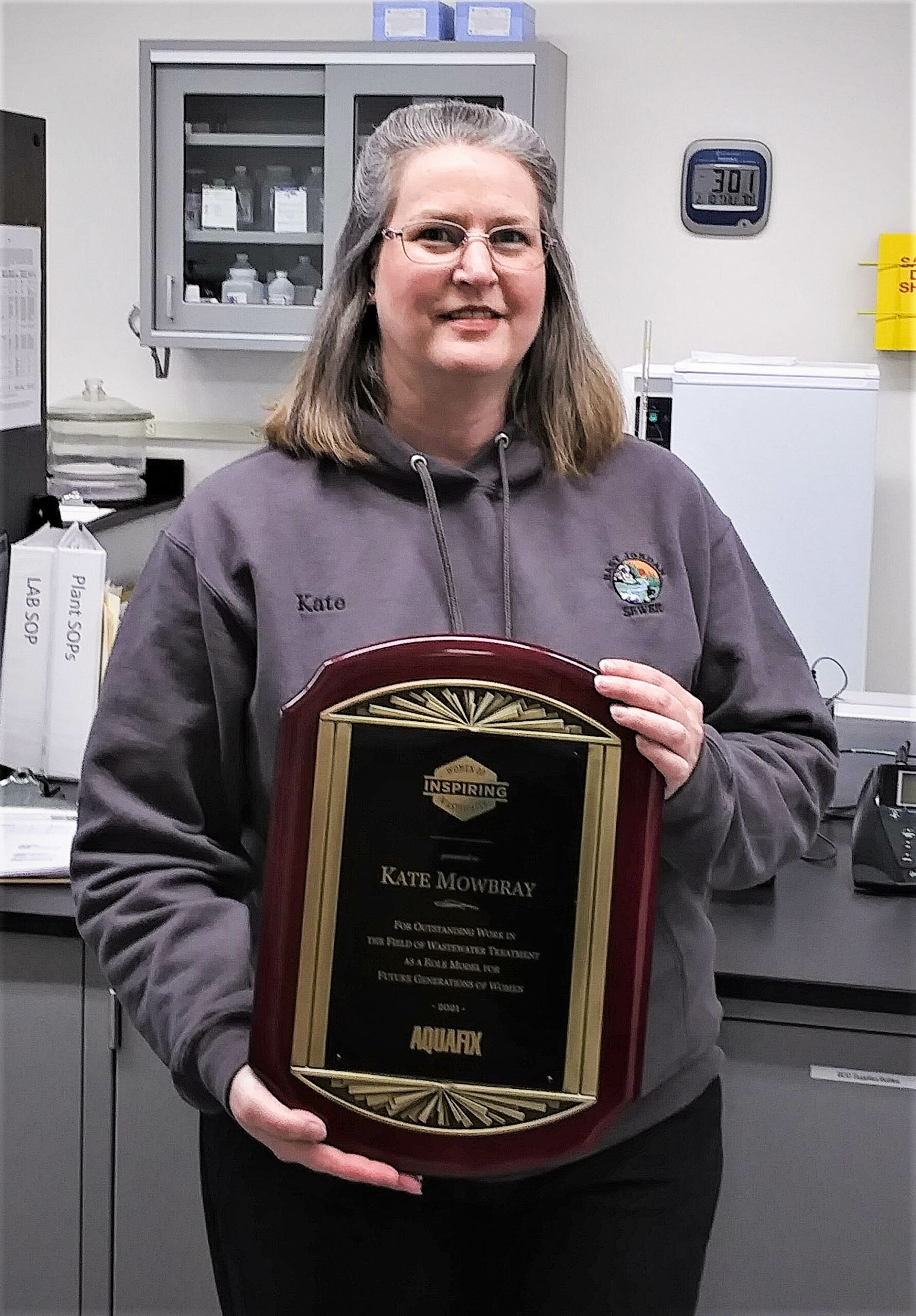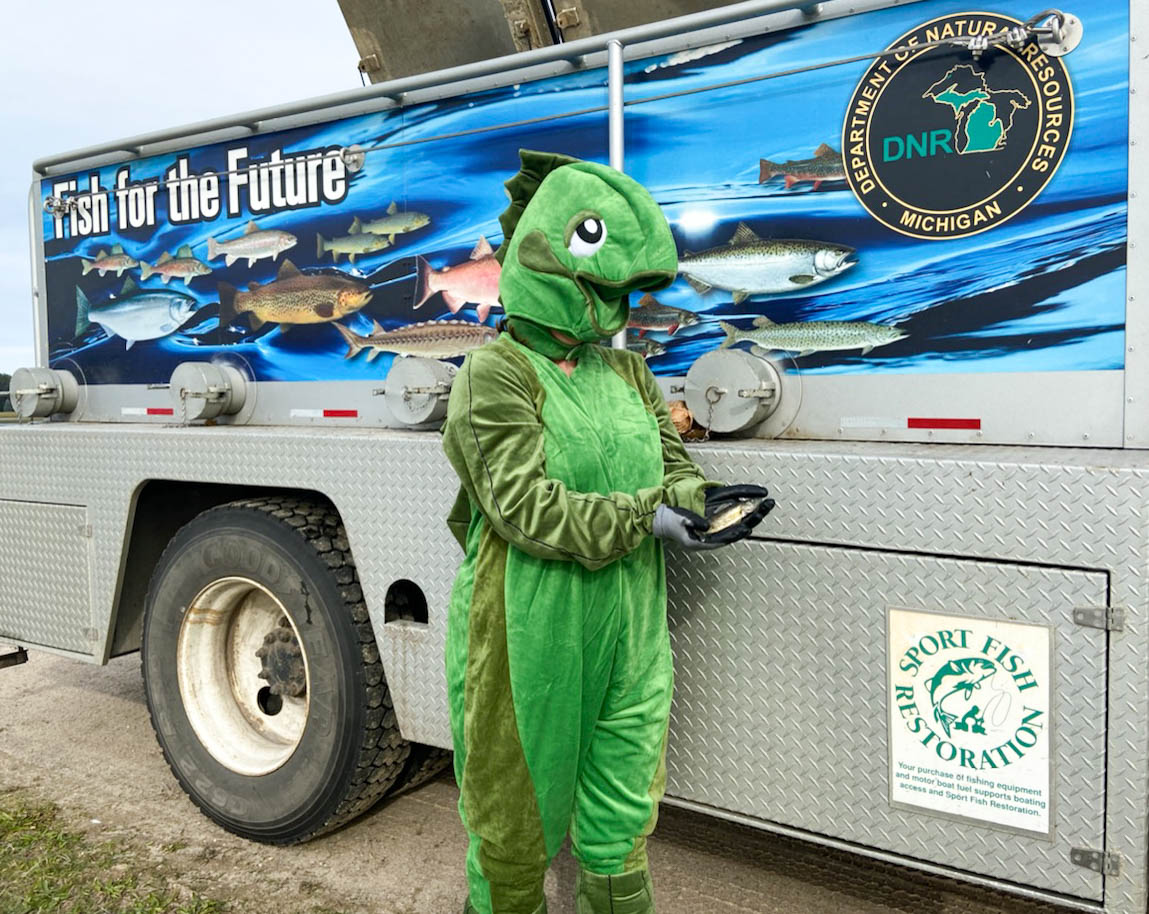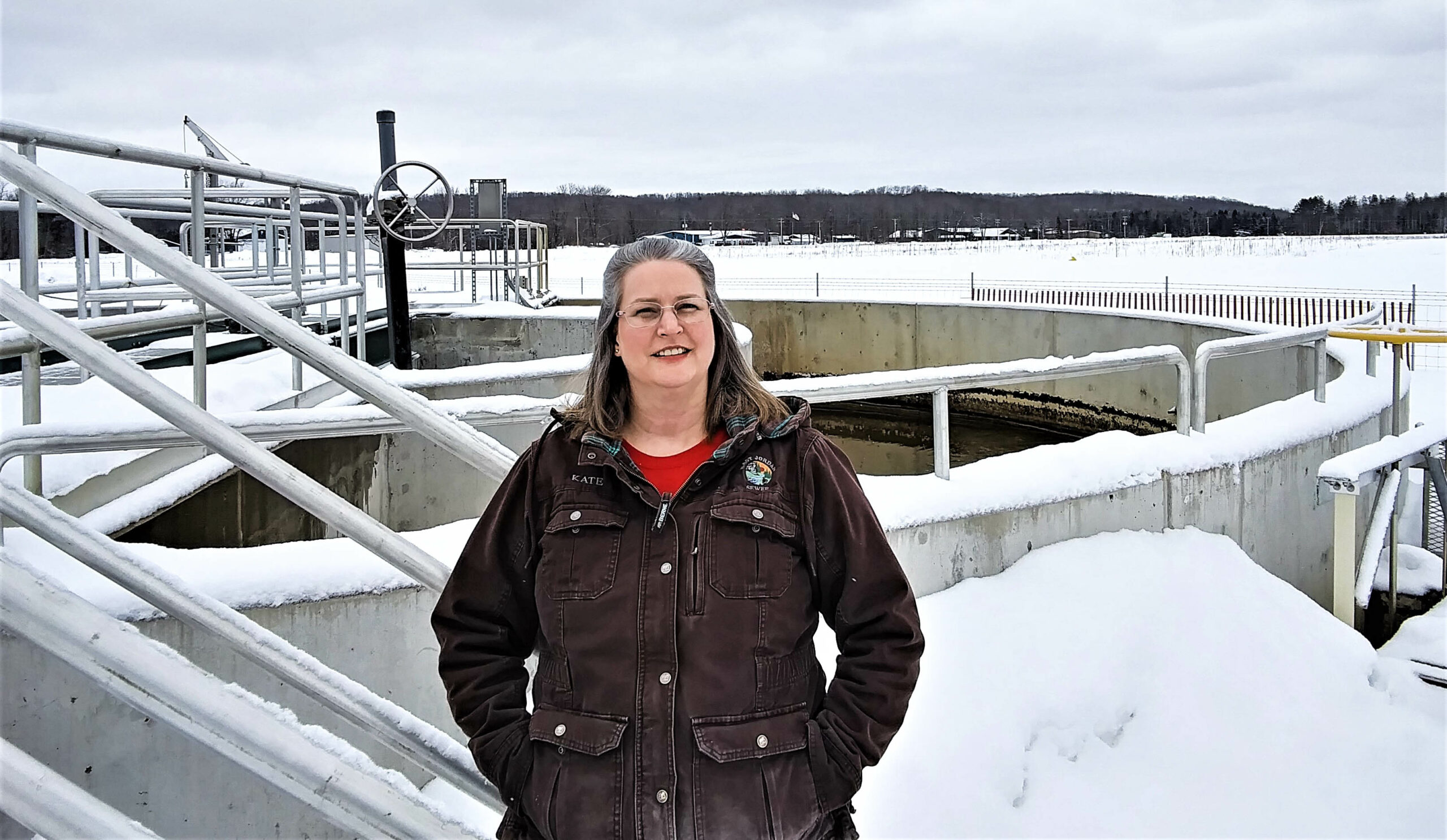
Company: Michigan municipality
Time in the Industry: 24 years
“I’ve found that as a wastewater plant operator in a small town, that I’m part lab technician, plant operator, electrician, equipment operator and janitor. ”
What does a typical day look like for you on the job?
As the only full-time operator at the plant, my day begins with unlocking all the buildings, checking the pumps and tanks, and checking the SCADA system for flow totals and alarms. Then I’m collecting the samples to run the lab analysis required by permit. I will make any process control changes that the lab tests indicate need made. Then I move to preventative and predictive maintenance on the equipment as well as housekeeping, recordkeeping, and grant writing. I spend most of my time at the treatment plant but I do help the DPW guys if they need help at the lift stations, especially with pump and electrical issues. In turn, they help me at the plant with jobs that need a little more muscle than I can provide.
 Have you enjoyed educating the public about your job? What has been the response from your community?
Have you enjoyed educating the public about your job? What has been the response from your community?
A few years ago, I headed the effort to repurpose an old wastewater treatment pond and turn it into a fish rearing pond for the Michigan Department of Natural Resources. We successfully raised our first batch of walleye this past summer. This partnership led me to create a mascot for the plant, Jordy the Walleye. Jordy is the center of my public outreach program focused on showing our customers what happens to the water after it goes down the drain. I had planned in-person events, but the pandemic has shifted it all online. Jordy, who is really just me in a fish costume, has his picture taken helping out at the plant. The pictures go on the city’s Facebook page with captions of whatever is happening in the picture. It’s still early in the process, but I’ve heard from some of our customers that they didn’t know where the plant was even located or that they didn’t know we had a lab and it involved that much science.
Why did you decide to pursue a career in the wastewater field? Did you always want to work in this field or was there a defining moment in which you chose this path?
I didn’t decide on this field. I think it chose me. I was 21 years old, just graduated from the police academy and was working as a police officer. I quickly realized that it wasn’t for me. I knew that I had to find something to do to pay the bills until I decided what I wanted to do with my life. The city I was working for as a police officer had an opening at the wastewater plant. Lucky of me, I had always liked science and took a bunch of math and science courses in college that my advisor told me I would never need as a police officer. I took the entry exam for the plant and was hired. I’ve bounced between municipal and private operation, water and wastewater, but 24 years later I’m still in it. I guess you could say I still haven’t decided what I want to be when I grow up.
 What thing about your career in wastewater has surprised you most?
What thing about your career in wastewater has surprised you most?
I’ve found that as a wastewater plant operator in a small town, that I’m part lab technician, plant operator, electrician, equipment operator and janitor. What has been most surprising to me is having to be part social worker. When a customer has a collapsed sewer lateral, our city ordinance says that it is the homeowner’s responsibility to repair it. In reality, their problem becomes your problem if the line is leaking raw sewage into the ground. I‘ve compiled a list of financial resources to help with making repairs. Now I’m not just saying “no, I can’t help you” and walking away. I can give them access to those who can help them.
Lessons from parents/role models that still ring true?
The first superintendent that I worked for told me that appearances matter. He said you can’t convince people that you are doing a good job treating the water if your own stuff looks like crap. If you are not maintaining the infrastructure that they can see, what does that say about the infrastructure they can’t see? Take the time to wash the truck, cut the grass, paint the sign.
Inspiring Women of Wastewater™
In 2017, Aquafix has launched a new campaign to honor the hardworking female wastewater operators that make up only about 5% of the industry. We want to use our platform to project these voices, and introduce the women of tomorrow to a whole new set of role models. To learn more about the Inspiring Women of Wastewater™ program, and to sign up or nominate another outstanding female operator follow the link below!

GOOD JOB KATE